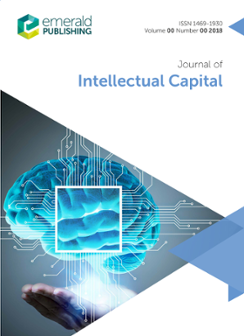基于企业生命周期的智力资本效率与企业财务绩效
IF 6.8
2区 管理学
Q1 BUSINESS
引用次数: 2
摘要
目的研究智力资本及其组成部分(人力资本、结构资本、关系资本和创新资本)在不同生命周期阶段对财务绩效的影响。设计/方法/方法该研究使用了2014-2018年中国制造业上市公司的数据。采用修正的附加值智力系数(MVAIC)模型作为IC效率的度量。最后,运用多元回归分析方法对研究假设进行检验。研究结果本研究表明,IC对FP的影响在不同的生命周期阶段是不同的。具体而言,在出生阶段,人力资本(HC)、结构资本(SC)和创新资本(INC)对FP有积极影响。在成长和成熟阶段,所有IC成分都有助于FP的提高。HC和SC在复兴阶段起着重要作用,而只有HC在衰退阶段对FP有积极影响。实际意义研究结果可能有助于企业管理者在复杂竞争的商业环境中通过有效利用IC资源来制定提高FP的最佳策略。同时,企业可以在不同的发展阶段对集成电路的核心要素进行投资,以最大限度地提高集成电路对企业价值的贡献。原创性/价值这是为数不多的从生命周期角度探讨IC对中国制造业上市公司FP影响的研究之一。它在MVAIC模型测量IC方面也做出了新的贡献,其中包括了以前研究中基本忽略的关系资本和INC。本文章由计算机程序翻译,如有差异,请以英文原文为准。
Intellectual capital efficiency and firms' financial performance based on business life cycle
PurposeThe purpose of this paper is to investigate the impact of intellectual capital (IC) and its components (human, structural, relational and innovation capitals) on financial performance (FP) at different life cycle stages.Design/methodology/approachThe study uses the data from Chinese manufacturing listed companies during 2014–2018. The modified value added intellectual coefficient (MVAIC) model is employed as the measurement of IC efficiency. Finally, multiple regression analysis is used to test the research hypotheses.FindingsThis study shows that the impact of IC on FP is different across life cycle stages. Specifically, at the birth stage, human capital (HC), structural capital (SC) and innovation capital (INC) have a positive impact on FP. At the growth and mature stages, all IC components contribute to FP improvement. HC and SC play an important role at the revival stage, while only HC positively affects FP at the decline stage.Practical implicationsThe findings may help corporate managers to make optimal strategies to improve FP by effective utilization of IC resources in the complex and competitive business environment. Meanwhile, companies can invest in the core elements of IC at different stages of development, so as to maximize the contribution of IC to company value.Originality/valueThis is among the few studies to explore the impact of IC on FP of manufacturing listed companies in the Chinese context from the perspective of life cycle. It also makes novel contributions in measuring IC by the MVAIC model with the inclusion of relational capital and INC that are largely neglected in previous research.
求助全文
通过发布文献求助,成功后即可免费获取论文全文。
去求助
来源期刊

Journal of Intellectual Capital
Multiple-
CiteScore
14.50
自引率
13.30%
发文量
27
期刊介绍:
The Journal of Intellectual Capital is a peer-reviewed international publication dedicated to the exchange of the latest research and best practice information on all aspects of creating, identifying, managing and measuring intellectual capital in organisations. The journal publishes original research and case studies by academic, business and public sector contributors on intellectual capital strategies, approaches, frameworks, tools, techniques and technologies in order to increase the understanding of intellectual capital within the context of the modern knowledge economy. The focus of this journal is on the identification of innovative intellectual capital strategies and the application of theoretical concepts to real-world situations.
 求助内容:
求助内容: 应助结果提醒方式:
应助结果提醒方式:


